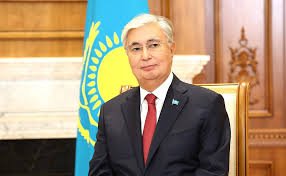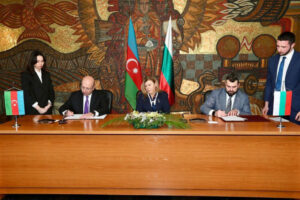Bulgaria Charts Confident Course Toward Euro Adoption by 2026

Sofia, The Gulf Observer: Bulgarian Prime Minister Rosen Zhelyazkov has reaffirmed the country’s unwavering commitment to joining the eurozone by January 1, 2026, emphasizing broad political unity, strong macroeconomic fundamentals, and robust public safeguards to ensure a smooth transition.
Speaking ahead of his departure to the European Political Community summit in Tirana, Zhelyazkov expressed optimism about the European Commission’s upcoming convergence report, due on June 4, stating it would likely reflect Bulgaria’s fiscal discipline and decreasing inflation trends.
“Our direction is clear,” he said. “We are prepared, united, and ready to take the next step into the heart of the European economy.”
Broad Political and Institutional Support
Zhelyazkov, together with Bulgarian National Bank Governor Dimitar Radev, signed a joint declaration reaffirming their joint resolve to complete the transition to the euro within the planned timeframe. This follows years of incremental progress and sustained policy alignment with European standards.
Crucially, the move is supported by an overwhelming majority in the Bulgarian National Assembly, with 171 MPs signing the pro-euro declaration—well above the qualified majority threshold for constitutional amendments. This rare show of cross-party consensus, Zhelyazkov noted, illustrates a mature, pro-European political culture that places national interest above partisanship.
Long-Term Efforts, Consistent Commitment
The prime minister credited Bulgaria’s steady progress since 1997, praising former Prime Ministers Ivan Kostov, who initiated the euro adoption process, and Boyko Borissov, whose successive administrations maintained momentum. The current government, Zhelyazkov said, is continuing this legacy with renewed vigor.
“The Bulgarian people deserve clarity and security,” he added. “Our commitment is not just symbolic—it is structural, legal, and grounded in economic logic.”
Addressing Public Concerns and Market Stability
Zhelyazkov stressed that public confidence is paramount. He pledged a series of targeted, transparent, and enforceable measures once the convergence report is positive. These include:
- Consumer protection mechanisms to prevent price manipulation and inflationary shocks
- Strict oversight of the transition process to combat speculation
- Clear public communication strategies to ensure widespread understanding of the benefits and practical implications
He also acknowledged opposition to the euro plan, including a referendum initiative by President Rumen Radev, which was ruled inadmissible by the Speaker of Parliament. Instead of dismissing critics, Zhelyazkov framed the debate as a democratic strength.
“We welcome all views,” he said. “Dialogue only strengthens our path forward.”
A European Vision with National Confidence
As Bulgaria prepares for deeper integration into the European common market, Zhelyazkov reaffirmed the euro transition as a strategic economic leap—one designed to bolster competitiveness, attract investment, and shield the economy from external volatility.
His statement, framed just before joining regional leaders in Tirana, symbolized a government not only looking inward at economic reforms, but also outward—toward full European integration.


